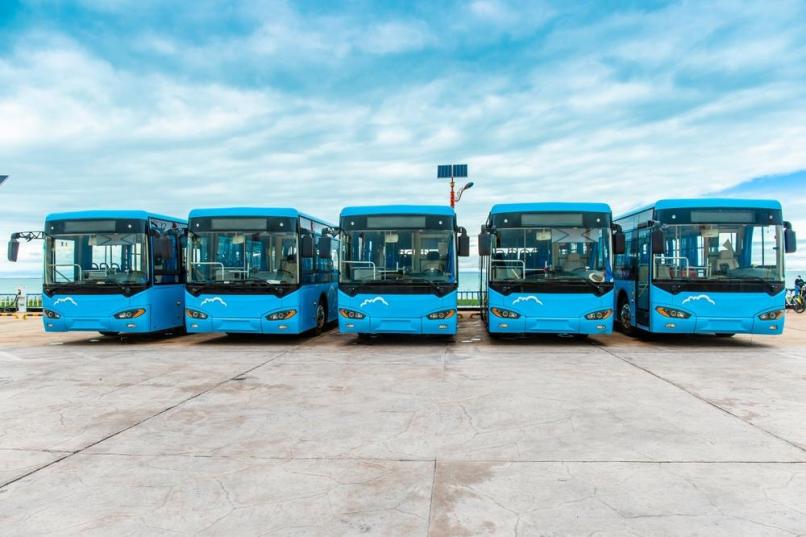Nigeria: Transitioning to a Sustainable Mass Transportation System
Abuja, Nigeria – This new report by Sustainable Energy For All outlines a strategic roadmap for Nigeria's transition to electric buses, emphasizing its potential to reduce emissions, improve air quality, and modernize public transportation. The report, developed in line with the nation's Energy Transition Investment Plan (ETIP), provides detailed guidance on policy framework, infrastructure requirements, and business models for successful e-bus deployment.
The SEforALL report on transitioning to sustainable mass transportation is a timely and essential resource for modernizing Nigeria's transportation system. By adopting the strategies outlined in this report, we can significantly reduce emissions, enhance public health, and create a more efficient and accessible transportation network throughout the country. The Lagos State Ministry of Transport fully endorses this report as a crucial guide in our collective pursuit of a cleaner, greener, and more sustainable future for all Nigerians.
Mr Oluwaseun Osiyemi, the Honorable Commissioner for Transportation Lagos
Nigeria is making significant strides towards a sustainable future, with the actionable steps taken towards the deployment of electric buses across the country. Recognizing the urgent need to decarbonize its transportation sector, the report prioritizes e-buses as a viable solution for modernised mass transit systems.
Key insights from the Report
a) Infrastructure development: The report emphasizes the need for meticulous planning to establish a robust e-bus ecosystem, including charging infrastructure, route optimization, and integration with existing transport systems.
b) Business Model Evaluation: The report evaluates different business models for e-bus deployment, recommending the Gross Cost Contract (GCC) model as the most sustainable and financially viable options which supports public-private partnerships.
c) Policy Recommendations: The report proposes policy reforms to create a conducive environment for the adoption of electric vehicles, such as revising the Nigerian Automotive Industry Development Plan (NAIDP) and the National Renewable and Energy Efficiency Policy (NREEEP). The report calls for policy reforms to create a conducive environment for the development and adoption of electric vehicles, such as incentives, regulations, and investments in charging infrastructure.
d) Implementation Guide: The report provides a step-by-step implementation guide, offering practical advice for decision-makers involved in e-bus deployment.
e) Case Study: The Report analyses the Lagos Bus Rapid Transit (BRT) System as a case study to inform future e-bus initiatives.
This report will serve as a valuable resource for policymakers, industry stakeholders, and investors seeking to contribute to Nigeria's sustainable transportation future. By following the recommendations outlined in the report, Nigeria can position itself as a leader in electric bus adoption and reap the benefits of cleaner air, reduced emissions, and improved public transportation.




